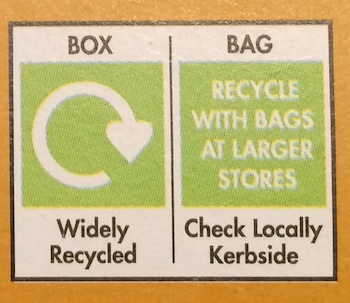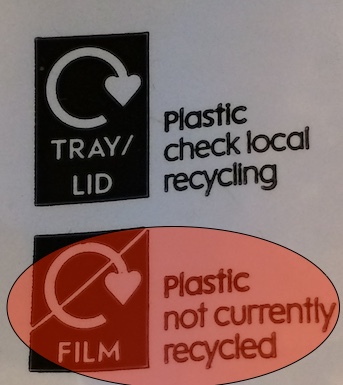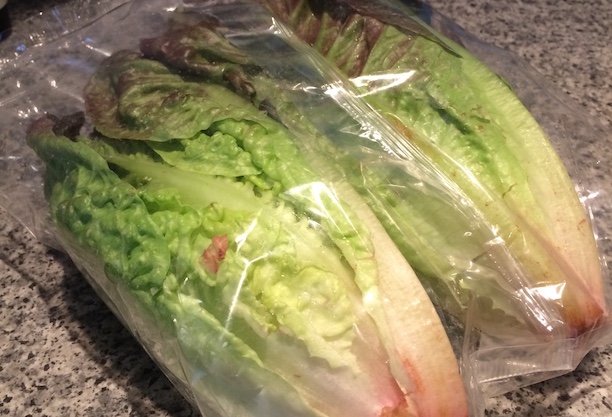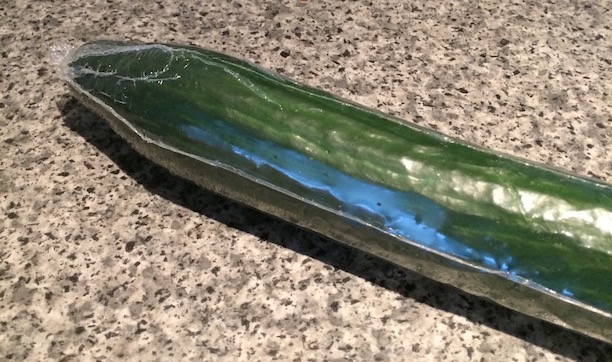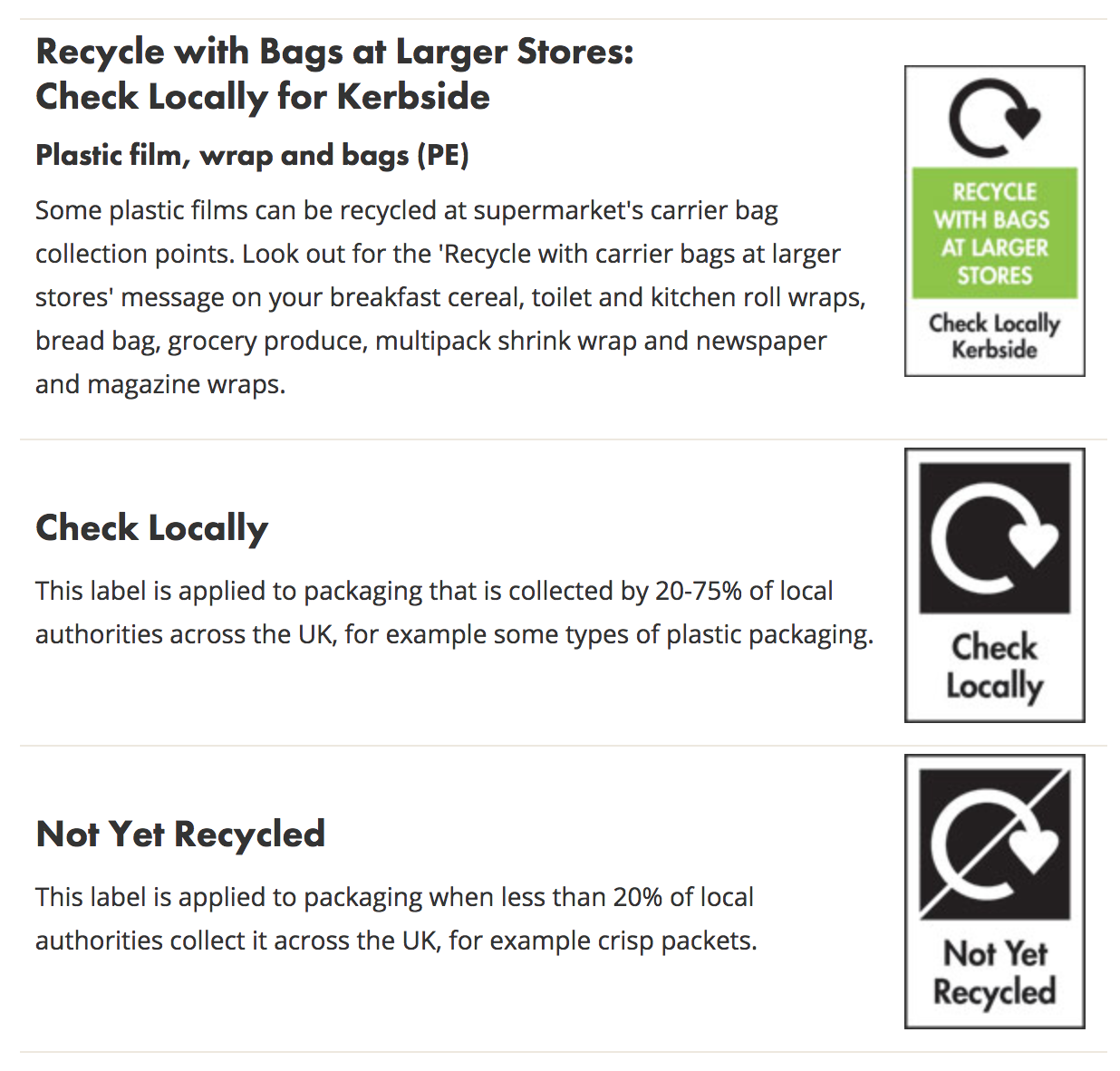I live in the UK and do most of my groceries shopping online. At the same time I collect my order I can also hand back to the driver all carrier bags from my previous order (which is great).
Some items like cereals, clearly indicate that the plastic packaging can be recycled along with carrier bags:
But most of them either don't or have this sign:
Example of such items:
Question: am I right to recycle these plastics along with carrier bags or am I doing more harm than good?
ADDITIONAL INFORMATION
I haven't been able to find a resin code on the carrier bags but I have reason to believe it is ♶:
Source: http://news.bbc.co.uk/1/hi/magazine/7516859.stm
Some relevant recycling symbols:
Source: https://www.recyclenow.com/recycling-knowledge/packaging-symbols-explained
